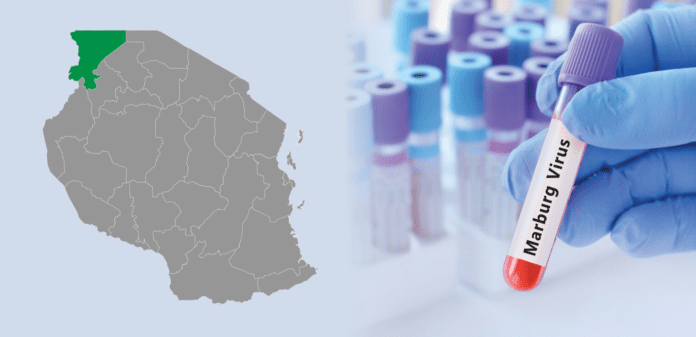Tanzania’s President Samia Suluhu Hassan confirmed on Monday the outbreak of Marburg virus, a highly infectious Ebola-like disease, in the north-western Kagera region, just a week after the country’s health minister denied the presence of any cases.
During a press conference, President Samia stated that health authorities had confirmed one case of Marburg, though a total of 24 suspected cases had been tested, all of which came back negative.
“We are confident that we will overcome this challenge once again,” Samia assured, recalling a previous Marburg outbreak in Tanzania in 2023.
On 14 January 2025, the World Health Organization (WHO) raised alarms after it reported a suspected Marburg outbreak in Tanzania, having recorded nine suspected cases and eight deaths over five days in Kagera.
However, Tanzania’s Health Minister Jenista Mhagama denied these reports, stating that after testing, all samples came back negative for the virus.
Yet, during Monday’s briefing, which was held jointly with the WHO, President Samia confirmed the presence of the virus, saying that a rapid response team had been dispatched to investigate and follow up on all suspected cases.
Marburg virus is highly infectious, with symptoms that include fever, muscle pains, diarrhoea, vomiting, and in severe cases, death due to extreme blood loss. According to the WHO, the virus has an average fatality rate of 50%, though this can vary from outbreak to outbreak.
Tanzania’s Health Ministry has confirmed that, aside from the one confirmed Marburg case, the other suspected individuals tested negative. However, the cause of the eight deaths reported by the WHO remains unclear.
Tanzania experienced its first Marburg outbreak in March 2023 in the Bukoba district, which resulted in six deaths over a period of nearly two months. This latest outbreak has raised fears, as Kagera is a transit hub, with many people traveling to and from the Democratic Republic of the Congo, Uganda, Burundi, and Rwanda, which increases the risk of cross-border transmission.
Meanwhile, Africa CDC, the African Union’s public health agency, reported that more than 300 contacts had been identified for further testing, including 56 health workers. Sixteen individuals are known to have had direct contact with suspected cases.
Despite the rising concerns, WHO Director-General Dr. Tedros Adhanom Ghebreyesus stated that the global risk from the outbreak is currently considered low. He also emphasized that, although there is no approved vaccine or specific treatment for Marburg, outbreaks can be swiftly controlled through collaboration and preparedness.
Dr. Tedros noted, “Even though there is no approved treatment or vaccines, outbreaks can be stopped quickly,” urging the international community to work together rather than impose travel restrictions.
The Marburg virus is transmitted to humans primarily through fruit bats, and subsequently through direct contact with the bodily fluids of infected individuals. There are currently no specific vaccines or treatments for Marburg, though trials are ongoing in some countries.
Neighboring Rwanda declared the end of a Marburg outbreak in December 2024, which had infected 66 people and resulted in 15 deaths. Authorities in Tanzania are now working to contain the current outbreak in Kagera.







